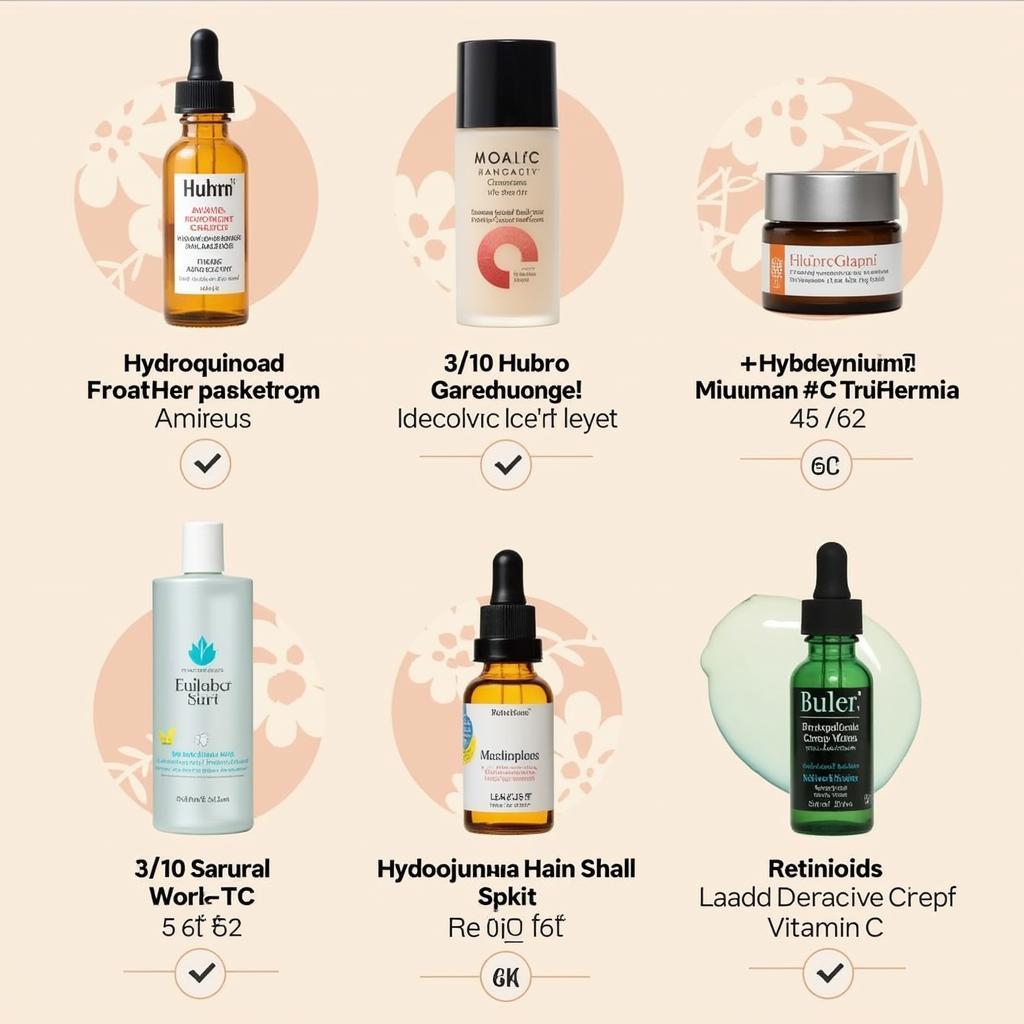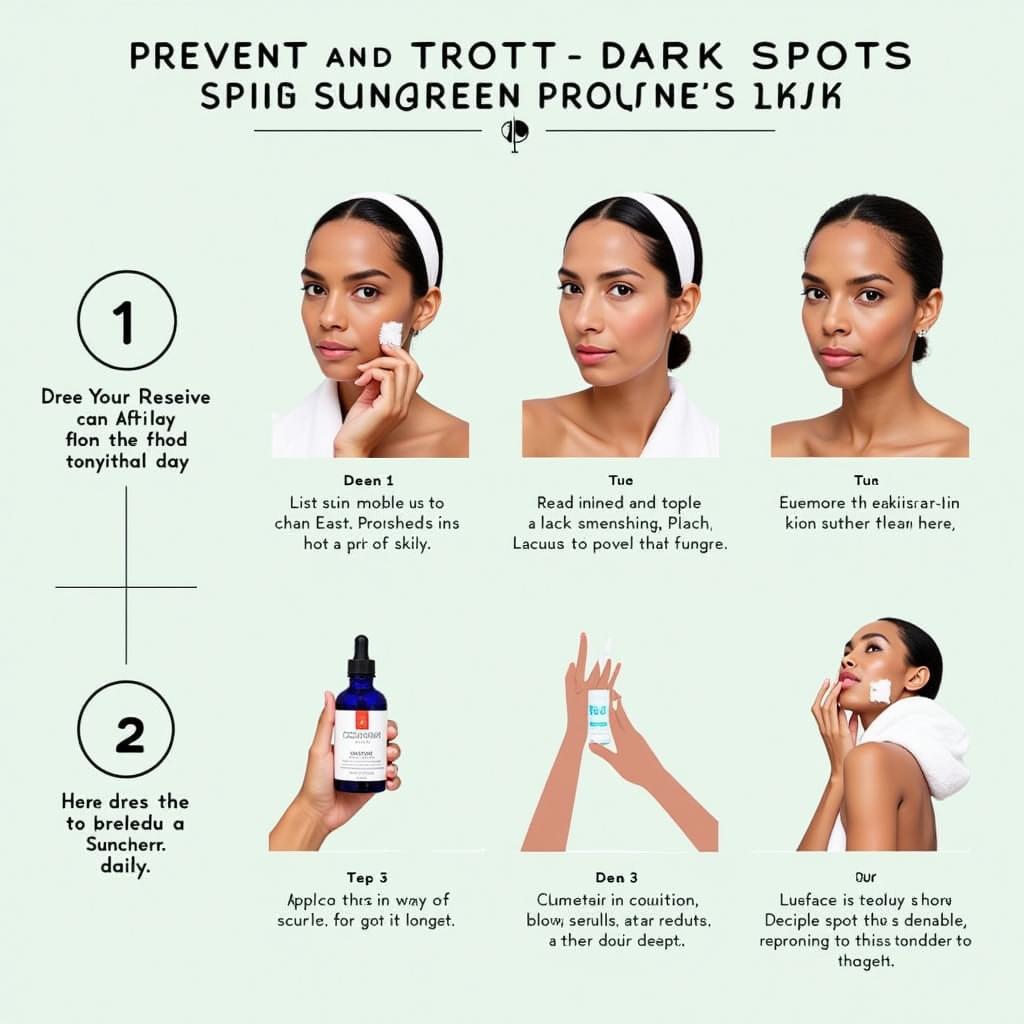African American Skin Care: Addressing Dark Spots
Dark spots, also known as hyperpigmentation, are a common skin concern for many, particularly those with African American skin. While harmless, they can be a cosmetic concern. This article explores the causes of dark spots, effective treatments, and preventative measures specifically tailored for African American skin care.
Understanding the unique characteristics of African American skin is crucial for effectively addressing dark spots. African American skin tends to have more melanocytes, the cells that produce melanin, which gives skin its color. This higher melanin content can make African American skin more prone to hyperpigmentation after inflammation or injury, such as acne, eczema, or even minor cuts and scrapes. It’s also important to be aware of the different types of dark spots, such as melasma, post-inflammatory hyperpigmentation, and age spots. Knowing the type of dark spot can help determine the best course of treatment. You can find more information on general skin care concerns for African Americans by reading about african american skin care issues.
Understanding Dark Spots on African American Skin
What causes dark spots? Several factors contribute to dark spots on African American skin. Excess melanin production, hormonal changes, sun exposure, and certain medications can all play a role. Post-inflammatory hyperpigmentation (PIH) is a particularly common type of dark spot, occurring after skin inflammation or injury. Even seemingly minor skin irritations can trigger PIH in African American skin due to the increased melanin production.
Different Types of Dark Spots
Understanding the different types of dark spots is key to effective treatment. Melasma is often triggered by hormonal changes, while age spots are related to sun exposure. Post-inflammatory hyperpigmentation, as mentioned before, arises after skin inflammation. Identifying the specific type of dark spot will allow you to choose targeted treatment options.
Treatment Options for Dark Spots on African American Skin
How can dark spots be treated? A variety of treatments are available, ranging from topical creams to professional procedures. Topical treatments containing ingredients like hydroquinone, retinoids, and vitamin C can help to lighten dark spots. Chemical peels and laser treatments can also be effective, but it’s crucial to consult with a dermatologist experienced in treating African American skin to minimize the risk of complications.
Choosing the Right Products for Your Skin
Selecting the right skin care products is essential for both treating and preventing dark spots. Look for products specifically formulated for African American skin, and opt for gentle, non-comedogenic formulas that won’t clog pores or further irritate the skin. For a good starting point, consider checking out some african american skin care products.
 Skin Care Products for Dark Spots on African American Skin
Skin Care Products for Dark Spots on African American Skin
Preventing Dark Spots on African American Skin
How can I prevent dark spots? Sun protection is paramount. Daily use of a broad-spectrum sunscreen with an SPF of 30 or higher is crucial to protect against sun-induced hyperpigmentation. Additionally, managing inflammatory skin conditions like acne and eczema can minimize the risk of PIH. Using gentle skin care products and avoiding harsh scrubbing can also help to prevent skin irritation and subsequent dark spots. A simple yet effective routine using african black soap skin routine could be beneficial. If you are curious about incorporating African black soap into your routine, you can see african black soap shea moisture before and after results for further insights.
The Importance of a Consistent Skin Care Routine
Establishing a consistent skin care routine that includes cleansing, moisturizing, and sun protection is essential for maintaining healthy, even-toned skin. Remember, consistency is key when it comes to preventing and treating dark spots. Acne can be a significant contributor to dark spots, so if you struggle with acne, it’s worth exploring more information on acne african american skin.
 Skin Care Routine for Dark Spots on African American Skin
Skin Care Routine for Dark Spots on African American Skin
In conclusion, effectively addressing dark spots on African American skin requires a comprehensive approach that includes understanding the underlying causes, choosing the right treatment options, and implementing preventative measures. By adopting a consistent skin care routine that prioritizes sun protection and gentle skin care practices, you can achieve a healthier, more even-toned complexion.
For further assistance, please contact us at Phone: +255768904061, Email: kaka.mag@gmail.com or visit us at Mbarali DC Mawindi, Kangaga, Tanzania. We have a 24/7 customer service team available.


